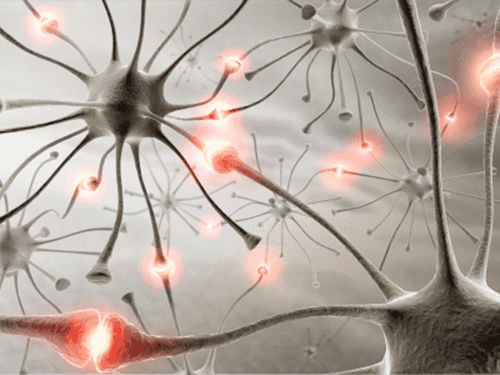This is an automatically translated article.
The article was professionally consulted with BSCK I Le Hong Lien - Department of Obstetrics and Gynecology - Vinmec Central Park International General Hospital.Epilepsy, also known as epileptic seizures, is a chronic disease characterized by seizures, spasms, and temporary loss of consciousness.
1. What is Epilepsy?
The abnormality in the brain leads to simultaneous stimulation of a group of neurons of the cerebral cortex, causing sudden and uncontrolled electrical discharge that is the cause of seizures. This is a chronic disease. Symptoms can be different if cortical stimulation is in different regions. Not only include seizures, sudden absence of consciousness, limb spasms are also manifestations of epilepsy.
2. Should anti-epileptic drugs be used during pregnancy?
The risk of miscarriage and premature birth is higher due to abdominal trauma during seizures and increased rates of stillbirth in mothers with epilepsy. Children are twice as likely to have mental retardation and epileptic seizures in their offspring if their mother has epilepsy. These are worrisome problems for pregnant women.If not treated, pregnant mothers with epilepsy can face the following bad cases: epilepsy does not improve, even gets worse; epilepsy may be more difficult to treat, with poor response to medication caused by treatment interruptions; Unsafe pregnancy leaves residual epileptic seizures in newborns and even in their offspring. The most important thing in these cases is to continue taking the medication.
There are clear advantages to continuing to take medication to control epilepsy and its bridging effects on pregnancy for the mother. However, this is not a method to ensure absolute safety for the fetus because the drug intervention during pregnancy also contains risk factors.

3. Using antiepileptic drugs can strongly affect the fetus
Antiepileptic drugs have the potential to cause birth defects, premature birth, and fetal death. According to some observations, all antiepileptic drugs are teratogenic and fetal death 2-3 times higher than usual. Congenital defects or deformities can affect any part of the body, but they are more common in the face, limbs, and spine. The most common are cleft lip and cleft palate.In normal mothers, these birth defects are at 2-3%, but in mothers who have to take antiepileptic drugs, it can be up to 4-5%. It has even been found to increase the teratogenic rate by up to 20% if the drug is used when observing a group of pregnant mothers at high risk of malformations.
In addition to facial defects, antiepileptic drugs also cause changes in the limbs of a newborn baby such as short fingers and toes, even being fused together.

For children born to mothers who are being treated for epilepsy, there may be blood clotting disorders, the baby is at risk of bleeding and clotting disorders when pregnant mothers use phenobarbital or other antiepileptic drugs for treatment.
Deficiency of vitamin K makes blood flow unstoppable, the strength of blood vessel walls is weakened. The cause of vitamin K deficiency in these babies was anti-epileptic drugs. Coagulation disorders can last up to 1 month of age or even longer, until 1 year of age, it can return to normal.
4. Treatment of epilepsy in pregnancy
Treatment of epilepsy in pregnant women is aimed at prolonging the seizure-free period, thereby reducing the effects of seizures on the fetus and limiting the teratogenic effects of antiepileptic drugs. terrible.First, the doctor needs to inform and clearly explain to the expectant mother to understand her current medical condition and the risks she may face during pregnancy so that she can safely cooperate with physician in treatment. If possible, the physician should switch to single-drug therapy and monitor maternal blood levels.
Within the first two months of pregnancy, it is mandatory to supplement with folic acid, at the same time to take vitamin K1 supplements from the 36th week (the 9th month) of pregnancy and to need vitamin K intramuscular injection for all to prevent neonatal bleeding syndrome due to the effects of antiepileptic drugs taken by the mother such as carbamazepine, phenobarbital, phenytoin.
In addition, it is necessary to closely monitor the fetal development, especially within the first 3 months, to quantify alpha fetoprotein by amniotic fluid test at 4 months of pregnancy for patients treated with valproate group drugs. . It should be noted that most drugs can pass from the mother's serum to the milk ducts and thus can be passed on to the breastfed infant.

Only small amounts of the drug are transmitted in breast milk and serum concentrations in infants are generally so low that pharmacological effects are not normally observed with phenytoin (sodanton), carbamazepine (tegretol), oxcarbamazepine (sodanton), and oxcarbamazepine. trileptal), valproate (depakin).
For ethosuximide (sucxilep) and lamotrigine (lamictal) serum concentrations in infants can reach levels where pharmacological effects appear, when the mother uses ethosuximide (sucxilep) and lamotrigine (lamictal). However, to date, the adverse effects of these antiepileptic drugs in breastfed infants have not been clearly established.
Some drugs can accumulate in the body of a nursing infant, causing drowsiness and poor feeding, such as the use of phenobarbital (gardenal) and its metabolite primidone (also phenobarbital), benzodiazepam (seduxen) ), so for women who are breastfeeding, they should monitor the side effects of the drug in the child. If the baby sleeps a lot or sucks less, she must switch to another drug when taking phenobarbital, primidone, and benzodiazepines.

An important point that you need to note is that during pregnancy, women with epilepsy should have regular antenatal check-ups as usual, in addition, to detect neural tube defects early to indicate pregnancy termination. Before the pregnancy is too big, pregnant women should have an ultrasound in the 4th month. Besides, delivery should be done in well-equipped obstetrics facilities to minimize the risk of convulsions during pregnancy. birth and the high risk of infant mortality.
To protect the health of pregnant women and their babies during pregnancy, Vinmec International General Hospital provides a package of maternity services as a solution to help pregnant women feel secure because of the companionship of the medical team. doctor throughout pregnancy. When choosing Maternity Package, pregnant women can:
The pregnancy process is monitored by a team of highly qualified doctors and regularly monitored with specialist doctors Regular checkups, early detection Abnormal problems Maternity package helps to facilitate the birthing process Newborns receive comprehensive care
Please dial HOTLINE for more information or register for an appointment HERE. Download MyVinmec app to make appointments faster and to manage your bookings easily.














